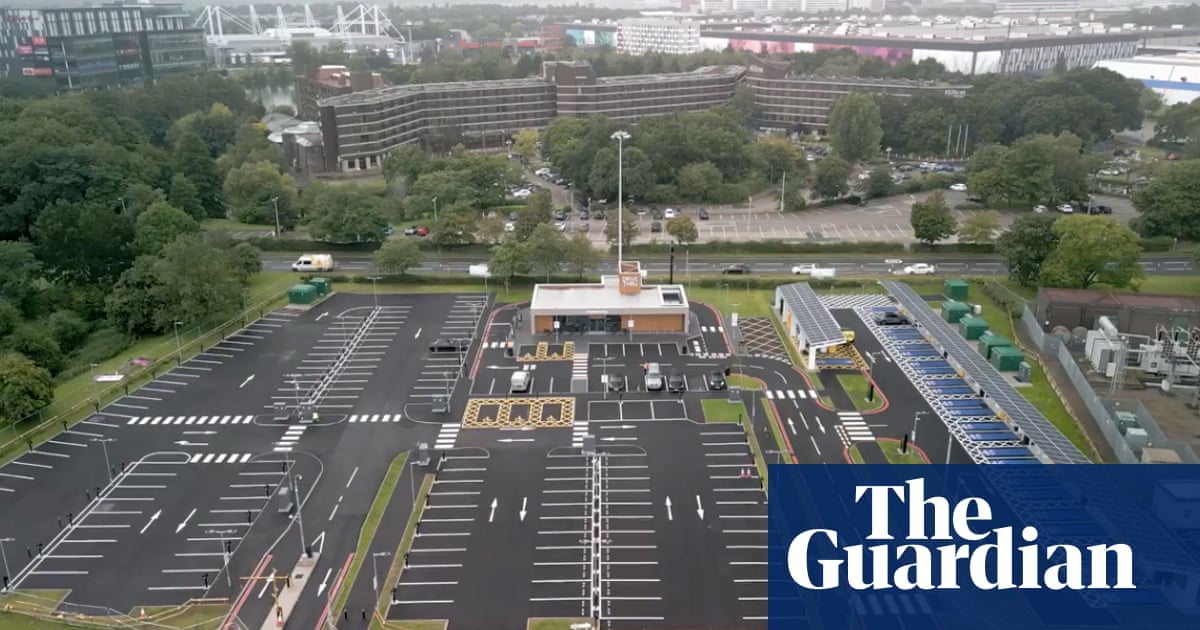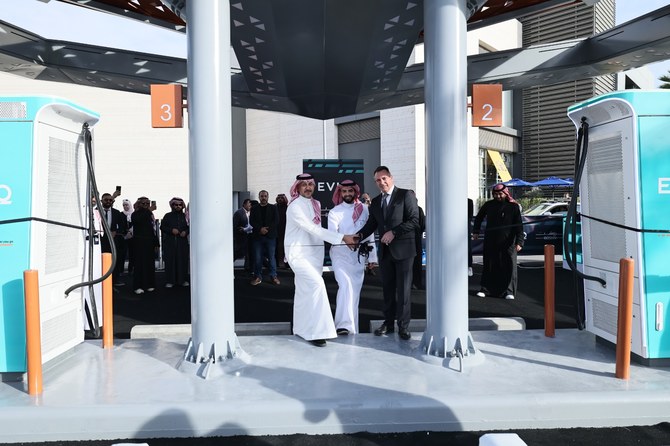
The UK’s largest electric vehicle charging hub has opened at Birmingham’s NEC conference centre with the power to charge up to 180 vehicles at a time in as little as 15 minutes.
The multimillion-pound site will provide the UK’s highest concentration of super-fast chargers in one location after the biggest-ever private investment in Britain’s charging infrastructure.
The hub offers motorists in the West Midlands 150 seven-kilowatt AC charging bays and a further 30 superfast, 300kW DC charging bays, which can be used to charge up a typical passenger vehicle in about 15 minutes.
The charging zone is located on the outskirts of Birmingham at the hub of the UK motorway network, with access to the M42, M46 and A45 and what will eventually become the new HS2 rail station.
The site was officially opened on Thursday by the chancellor, Jeremy Hunt. He said the “groundbreaking” investment marked “a significant step in our rollout of electric vehicle charging infrastructure across the country”.
“This is the biggest private investment in electric charging in the UK and is a huge vote of confidence in Britain’s role as a leader in green industries,” Hunt said.
Andrew Cole, a director at the NEC Group, said the conference centre’s campus, which has 7 million visitors a year, could now charge about 1,000 electric cars in every 12-hour day.
The “Gigahub” was developed between the NEC, independent charging infrastructure company EV Network and BP Pulse, which operates the site.
Akira Kirton, the vice-president of BP Pulse UK, said the company, which is owned by the oil company BP, would invest up to £1bn to accelerate the development of the UK’s EV infrastructure by delivering “the right charging speeds, in the right locations”.
“We plan to roll out hundreds of hubs this decade in places EV drivers needs them – urban areas, on trunk roads and motorways and at destinations such as restaurants, retail parks and hotels,” he said.
Reza Shaybani, the co-founder and chief executive of EV Network, warned that the UK’s existing grid infrastructure was “a key bottleneck in developing future robust infrastructure for fast charging”.
“This is why sites like [the Birmingham NEC] are all about the grid connection and their vicinity to electrical infrastructure,” he said.
“We’re envisaging a situation where 30 cars turn up at the same time and draw maximum power. The site is designed in such a way that if all the sockets are in use at the same time the grid can cope with providing enough power for everybody.”












